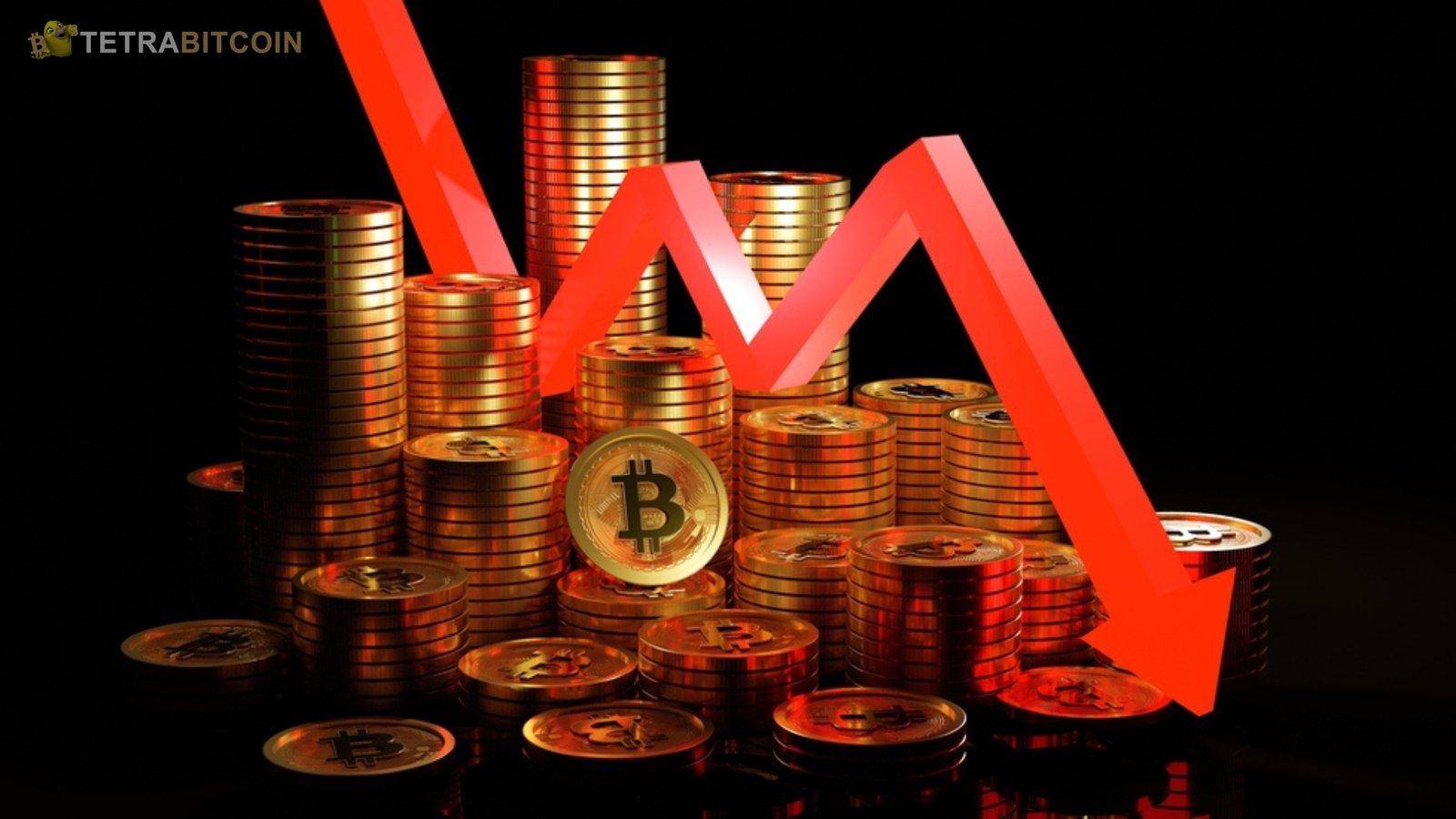Bitcoin Mining Scams: Digital currency space is still dominated by Bitcoin in the cryptocurrency world. Millions of people around the world are drawn to its decentralized structure and the possibility of substantial profits. Unfortunately, with this expansion has come an increase in con artists targeting Bitcoin miners in particular. Keep yourself protected from the most prevalent Bitcoin mining scams with this updated guide. We’ll show you how they work and what you can do to avoid falling victim.
Understanding Bitcoin Mining
Before diving into scams, it’s important to understand what Bitcoin mining is. Bitcoin operates on a blockchain network, which is maintained by miners. These miners solve complex mathematical problems using specialized hardware to validate transactions on the network. In return for their efforts, they are rewarded with new Bitcoin. This process is resource-intensive, requiring significant computational power and electricity.
Given the technical and financial barriers to entry, many people are attracted to services offering mining opportunities. Scammers exploit this interest, preying on those unfamiliar with the intricacies of mining.
Common Bitcoin Mining Scams in 2024
Cloud Mining Scams
Cloud mining platforms allow individuals to rent mining hardware, eliminating the need to buy expensive equipment. While legitimate cloud mining services exist, many fraudulent platforms have emerged, particularly in the past few years. In cloud mining scams, the platform promises investors a share of the mining profits in exchange for an upfront fee or subscription. However, once the investor pays, the service may either:
- Not mine any Bitcoin at all, but still report fake profits for a while.
- Run a Ponzi scheme, where new investors’ money is used to pay off earlier participants.
In both cases, the scam collapses once the scammers decide to stop paying, leaving investors without their funds or any Bitcoin.
Signs of Cloud Mining Scams:
- Unrealistic profit guarantees: Scammers often lure victims by promising fixed daily, weekly, or monthly returns, which is nearly impossible in the volatile world of Bitcoin mining.
- Lack of transparency: Legitimate services will disclose their hardware, location, and other operational details. Fraudulent platforms often hide this information or provide vague details.
- No proof of mining activities: Be cautious of platforms that do not provide verifiable evidence of their mining operations.
Hardware Pre-sale Scams
As Bitcoin’s popularity rises, so does demand for high-performance mining hardware (such as ASIC miners). Some scammers promise to sell these in-demand devices, often at a discounted price, during a “pre-sale” phase. The buyers are told the hardware will ship at a future date, but the devices never arrive. Instead, the scammers disappear with the customers’ funds.
Signs of Hardware Pre-sale Scams:
- Discounts too good to be true: Mining hardware is expensive, and any offer that seems suspiciously low-priced should raise a red flag.
- Unverified vendors: Only buy mining equipment from reputable manufacturers or verified resellers. Always do thorough research on the vendor’s history and customer reviews.
- Demand for upfront payment in cryptocurrency: Scammers prefer payments in Bitcoin or other cryptocurrencies because these transactions are irreversible.
Fake Mining Pools
Mining pools allow miners to combine their computational power to increase the chances of solving a block and earning rewards. Members of the pool share the profits according to the amount of computing power they contribute.
Scammers sometimes set up fake mining pools, where they either don’t perform any mining or skim profits from the pool before paying out. These scams typically target novice miners looking to join a pool for the first time.
Signs of Fake Mining Pools:
- No payout records: Legitimate pools have a history of payouts and will display transaction data transparently on their website.
- Suspicious fees: Fake mining pools may charge higher-than-average fees or additional “administrative” charges that reduce your payouts.
- Anonymous operators: The creators of the pool should be transparent about who they are. Any pool operated by unknown or anonymous people is a risk.
Pyramid Schemes and Ponzi Schemes
In 2024, Ponzi schemes remain one of the most widespread scams in the crypto world. These schemes lure investors with promises of guaranteed returns, often with the option to increase earnings by recruiting others.
Ponzi schemes may disguise themselves as cloud mining operations, investment platforms, or multi-level marketing businesses. Early investors may indeed receive returns, which leads them to reinvest and recruit new members. However, these payouts are often generated by the funds of newer investors rather than legitimate mining profits. Eventually, the scheme collapses when new investments dry up, leaving later participants with significant losses.
Signs of Ponzi and Pyramid Schemes:
- Focus on recruitment: If a platform incentivizes you to recruit new participants, it’s likely a pyramid scheme.
- Guaranteed returns: Bitcoin mining, like other investments, has inherent risks. Any platform guaranteeing high returns with little or no risk should be viewed with suspicion.
- No verifiable business model: Scammers often cannot provide a clear explanation of how they generate profits beyond new investments.
Fake Mobile Apps and Websites
Another growing trend in Bitcoin mining scams involves fake mobile applications and websites. Scammers develop apps or websites that claim to allow users to mine Bitcoin via their smartphones or participate in mining pools. Once the app or website gains enough users, the scammers either:
- Steal personal information or private keys stored in the app.
- Withdraw the users’ Bitcoin and shut down the platform.
- Charge upfront or subscription fees without delivering any services.
These fake apps and sites often mimic legitimate platforms, making it difficult for the average user to identify the fraud.
Signs of Fake Mobile Apps and Websites:
- Poor app reviews: Always check reviews and ratings on trusted platforms like the Apple Store or Google Play. Scammers often fake reviews, but low-quality apps tend to receive critical comments quickly.
- Permissions overreach: Be cautious of apps that request unnecessary access to your data, such as your contacts or photos.
- Copycat websites: Ensure the URL matches the official site. Scammers often create websites with slightly misspelled names to trick users.
How to Protect Yourself from Bitcoin Mining Scams
As Bitcoin mining scams become more sophisticated, it’s crucial to take proactive steps to protect your investments. Here are some tips to safeguard yourself:
- Conduct thorough research: Before engaging with any mining platform, hardware vendor, or mining pool, spend time researching its legitimacy. Check online forums, review sites, and social media for user experiences and complaints.
- Verify mining operations: If a company claims to be mining Bitcoin, ask for verifiable proof. Look for information on their mining equipment, location, and transaction history.
- Be skeptical of unrealistic promises: Any platform promising guaranteed returns or claiming to double your money in a short period should be viewed with suspicion.
- Use trusted platforms: Stick to well-known and reputable mining companies or hardware manufacturers. Avoid unknown startups or platforms with limited information.
- Never invest what you can’t afford to lose: Like any investment, Bitcoin mining carries risks. Only invest funds you are willing to lose, especially when dealing with new or unfamiliar platforms.
- Enable two-factor authentication (2FA): Always use 2FA on platforms that store your Bitcoin or personal information. This adds an additional layer of security in case your password is compromised.
Conclusion
Bitcoin mining scams continue to evolve, preying on the optimism and trust of investors looking to capitalize on the cryptocurrency boom. The best defense against these scams is awareness and vigilance. By understanding how these scams operate and recognizing their red flags, you can protect yourself and your investments from falling victim to fraudulent schemes.
Always remember that if something sounds too good to be true, it probably is. Stay informed, cautious, and protect your hard-earned cryptocurrency from the growing threat of Bitcoin mining scams.

